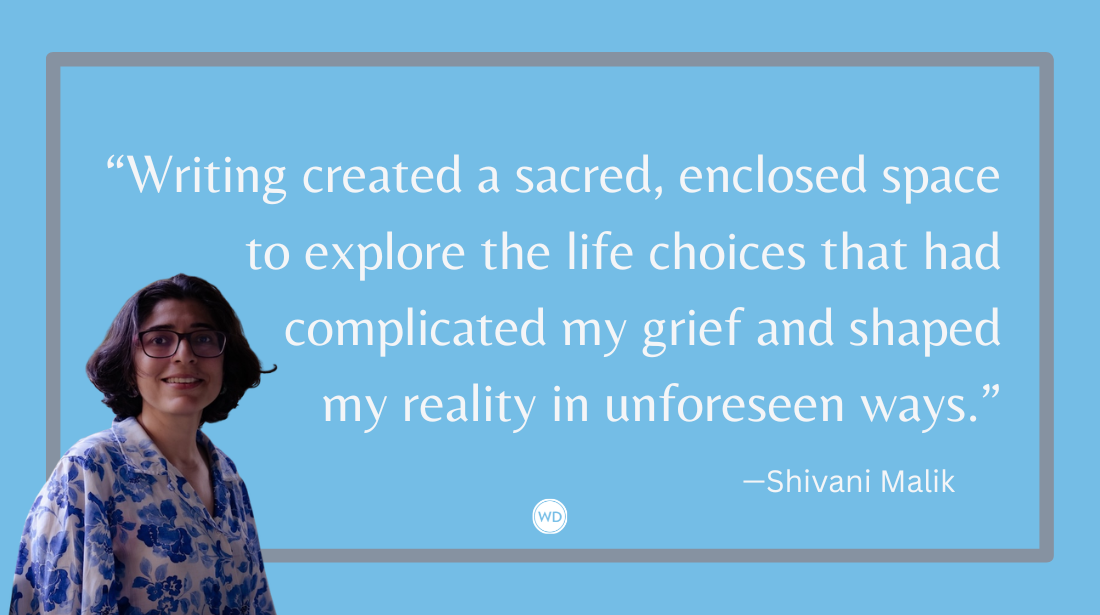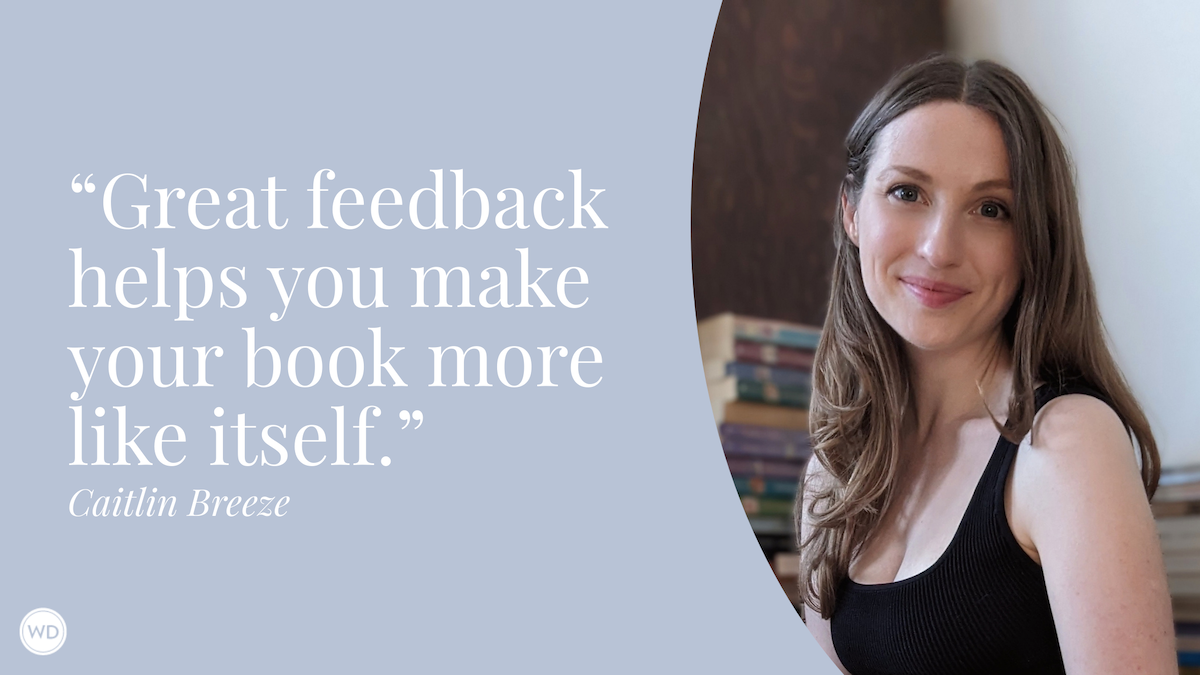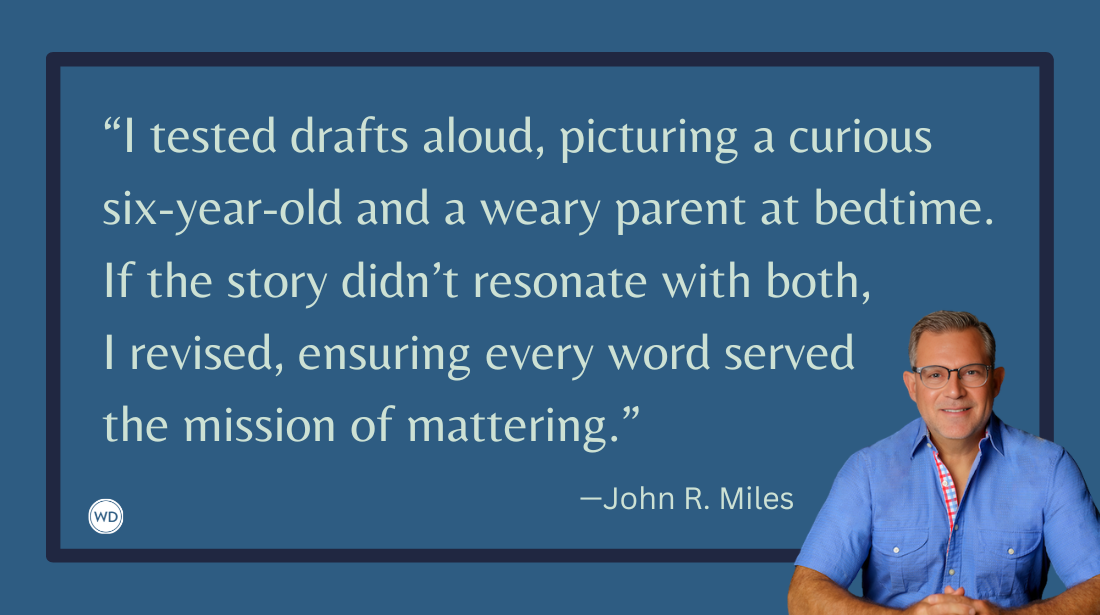Charlie N. Holmberg: The Entire Novel Was an Exercise in Pantsing
In this interview, author Charlie N. Holmberg discusses how she took her own advice when writing her new romantasy, The Shattered King.
Charlie N. Holmberg is a Wall Street Journal and Amazon Charts bestselling author of fantasy and romance fiction, including The Hanging City, Star Mother, the Paper Magician series, the Spellbreaker series, and the Whimbrel House series, and she writes contemporary romance under C. N. Holmberg. She is published in more than 20 languages; has been a finalist for the ALA awards, the Goodreads Choice Awards, and multiple Whitney Awards; and won the 2020 Whitney Award for Novel of the Year: Adult Fiction. Born in Salt Lake City, Charlie was raised a Trekkie alongside three sisters who also have boy names. She is a BYU alumna, plays the ukulele, and owns too many pairs of glasses. She currently lives with her family in Utah. Visit her at CharlieNHolmberg.com, and follow her on X (Twitter), Instagram, Facebook, and TikTok.
In this interview, Charlie discusses how she took her own advice when writing her new romantasy, The Shattered King, the importance of making writing a daily habit, and more.
Name: Charlie N. Holmberg
Book title: The Shattered King
Publisher: 47North
Release date: September 2, 2025
Genre/category: Romantasy
Previous titles: 25 titles, including the Paper Magician series, the Spellbreaker series, The Hanging City, and the Whimbrel House series.
Elevator pitch: A captive healer and a mysterious prince are drawn to each other in the midst of war and magic in a beguiling dark fantasy by Wall Street Journal bestselling author Charlie N. Holmberg.
What prompted you to write this book?
One of my other books + playing Final Fantasy.
OK, but really. My husband and I were playing Final Fantasy 16 together at the time. I was also working on my first craft book, Charlie N. Holmberg’s Book of Magic, which is essentially a how-to on writing magic systems.
In this book, I included several appendices to get authors’ juices flowing. One of these appendices included a list of commonly used magic in fantasy stories. The purpose of the list? A) Authors could avoid these types of magic and aim for originality, B) Authors could embrace these types of magic and aim for a shallow learning curve, or C) Authors could take these types of magic and put their own spin on them.
I was contemplating this while battling Ultima with a giant fire Eikon (though let’s be honest, my husband did all the battling in that game) and thought, Why not take my own advice? How would I personally utilize this index?
So, I thought, OK, let’s do C: Take a common magic and put my own spin on it. I chose healing magic. Healing magic is everywhere. Done, done, and done again. What would I do differently? And as I thought about it, I really liked what I came up with. Add an illness subplot from Final Fantasy 16, and I was hooked.
How long did it take to go from idea to publication? And did the idea change during the process?
The Shattered King is an anomaly. I had the first inklings of it in May and did a lot of brainstorming for it. Wrote down some ideas for an outline. And then at the end of June I felt this insane PUSH to start it. I didn’t have a solid outline in the slightest. The entire novel was an exercise in pantsing. But it took me only 15 days to complete the first draft.
That was a writing record for me, but I was obsessed with this story. I couldn’t think of anything else. It just poured out of me.
Were there any surprises or learning moments in the publishing process for this title?
Uh, yeah. Apparently, I can discovery-write a novel?
I’m a big-time outliner. I like planning all the stages of my books. I have notebooks full of information, which I then storyboard on a wall with sticky notes. From there I compile and flush out an outline.
There were no sticky notes for this book.
I have never understood people who could just sit down with an idea and write. I need structure. I need planning. But apparently, it’s possible, even for my Type-A brain.
The Shattered King was also an exercise in tropes and getting over myself. Tropes are not bad. Tropes are tropes because people like them. In my discovery-writing stupor, I embraced any and every trope that made me happy. In production, I began to genuinely fear this book was going to be boring, or overlooked, or simply not special enough. I’d always prided myself on being different. On finding something unique or quirky to incorporate into my tales. Ultimately, I did think I achieved that with this book, but I did have to get over the anxiety of writing—oh no!—things people had definitely seen before.
Were there any surprises in the writing process for this book?
Yep. For instance, I had never intended to write about war.
I love cozy fantasies. Stories where the country/continent/world isn’t at stake. My novels tend to lean that way as well. I’m not particularly interested in political intrigue or war. This is literally the first book I’ve written that has a royal as a main character. But apparently that’s the direction this book wanted to go. You just can’t write about kingdoms without getting into that less-cozy grit.
This is also why I hate pantsing, ha ha.
What do you hope readers will get out of your book?
First and foremost, I want them to get a good story! I absolutely love the feeling of reading a book that has me enthralled. Something about the written word is so much more engrossing than more visual entertainment. I yearn for that feeling. So, if I can give that to another person, I consider it a wild success.
I also wanted to take an adult (as in grown-up, not graphic), realistic take on some of the hardships people in this book’s world—and our world—face. I hope I accomplished some sort of understanding and empathy for them through this story.
If you could share one piece of advice with other writers, what would it be?
I always have two answers to this question.
Answer #1: Allow yourself to suck.
We all suck at this. This is my 26th published book and I STILL had to make an edit so the climax would be ACTIVE. Yep. Writing 101, right there.
Nitpicking a first draft will always do more harm than good. Editing (and over-editing) the same words again and again instead of moving forward stunts progress. It’s OK if the first words are bad. They’re supposed to be bad. The fixing comes later.
Which ties into,
Answer #2: Give yourself a daily word count.
You can’t publish a book you haven’t finished. A completed book that sucks will always win against a book that’s unfinished. So, once you’ve determined it’s OK to suck, you need to get into the habit of consistently writing. 500 words a day is one-half to one whole page on Microsoft Word. 500 words a day is a professional pace. Make the habit, make the book.









